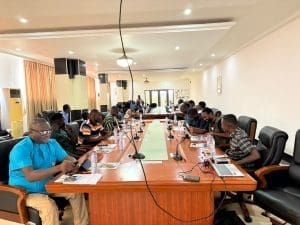The head of Ghana’s parliamentary accountability body is pushing for full enforcement of the nation’s public finance law to reduce waste and improve governance.
Abena Osei Asare, who chairs the Public Accounts Committee, told ministries and government agencies that compliance is non-negotiable. Her remarks came during ongoing hearings in Accra focused on the latest audit report.
Osei Asare stressed that the Public Financial Management Act exists for a reason. It sets clear rules for how public money should be handled, and she expects every official to follow them. When they don’t, she said, there must be consequences. That includes the use of surcharges to recover lost funds from responsible officers.
Why does this matter to the average citizen? It’s about trust. Every cedi lost to poor management or corruption is a cedi not spent on roads, schools, or healthcare. The committee believes that preventing financial slip-ups before they happen is smarter and cheaper than chasing losses after the fact.
A stronger, well-resourced Audit Service is central to this preventive approach. Osei Asare described it as the nation’s early warning system against mismanagement. When auditors can do their job without interference, they catch errors early and help keep everyone honest.
The hearings will review the 2024 financial statements of various government bodies. This year’s audit flagged concerns over growing public debt, unreliable financial reporting, and poor oversight of state assets. Many Ghanaians are tired of seeing the same problems year after year.
This firm stance from the committee could signal a shift. By combining legal muscle with institutional support, lawmakers hope to turn the tide on fiscal indiscipline. For a country keen to stabilize its economy, this isn’t just about accountability. It’s about building a future where public funds actually serve the public.
Source: newsghana.com.gh











